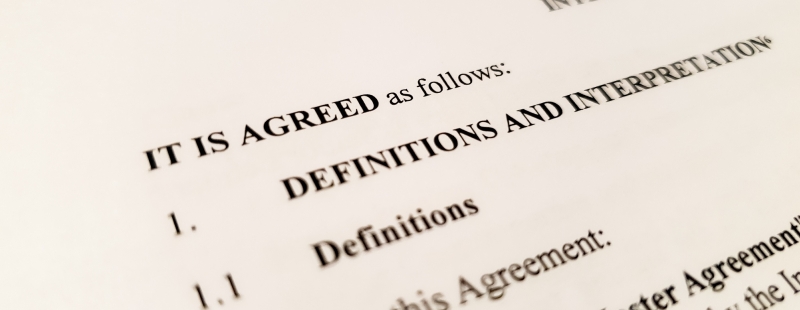Fiorello: ”Hey wait, wait! What does this say here? This thing here?”
Driftwood: It’s alright, that’s in every contract! That’s what they call a “sanity clause”
Fiorello: Ha ha ha ha… you can’t fool me. There ain’t no sanity claus!”
– Groucho and Chico Marx – A Night at The Opera
In the 19th Century printers bought metal plates of standard text to include in newspapers or in documents that they were frequently asked to provide for their customers. The plates resembled the metal plates that engineers fixed to machinery and so the term “boilerplate” was coined for standard text in written agreements.
Boilerplate in a legal agreement is the expression given to standard clauses that are commonly used in particular types of agreement. They are a way of saving lawyer’s time through using recognised standard wording to cover various common situations such as time periods, the format in which documents should be sent, or where and how they should be delivered, and can extend to the rights of the parties if a dispute arises.
Boilerplate is usually tedious to read, is often placed towards the end of documents by which time a reader’s eyes may be glazing over, or may be incorporated by reference to a second document. That small box that you tick before making an on-line purchase to confirm that you have read the terms and conditions just before paying is your confirmation that you are accepting boilerplate clauses which are set out in a separate document.
As with many other aspects of life, familiarity can breed contempt and that’s why boilerplate can be a trap for the unwary.
Small changes to standard clauses can have a significant impact on the meaning of a document: time periods can be shortened or extended, rights of one or other party enlarged or restricted, the right to recover financial compensation limited or excluded altogether.
Examples that we have encountered are:
- Notice to terminate a contract being given by email when the boilerplate provides that notice can only be given by first class post;
- Failing to give the right period of notice to exercise an option to bring a lease to an end;
- Losing the opportunity to make a claim for defective goods by not realising that the claim had to be made within 7 days of receipt of the goods;
- A property seller of a leasehold property losing their buyer after contracts have been exchanged and having to refund the deposit because the seller failed to get Landlord’s consent to the sale in time.
When negotiating an agreement a lawyer that is familiar with boilerplate will spot deviations from the norm, warn their client, and try to negotiate with their opposite number to restore the balance between the parties.
In a dispute that turns on the interpretation of boilerplate a lawyer can argue that the boilerplate is reasonable or unreasonable, or question its legality, but that can prove lengthy and costly.
Otherwise, if the boilerplate is not unreasonable or illegal but makes literal sense a Court will uphold it. That is why it is important to review all parts of an agreement before it is signed so that everyone understands its implications.
If you’d like us to review any agreement for peace of mind, our Commercial Solicitors are here to help. To find out more or discuss your requirements in further detail, contact us today on 01603 693500 or email us using the ‘Make an enquiry’ form on our website.
For more information on the commercial service we offer, please click here
*This article is provided for general information purposes only and does not constitute legal advice or other professional advice.
